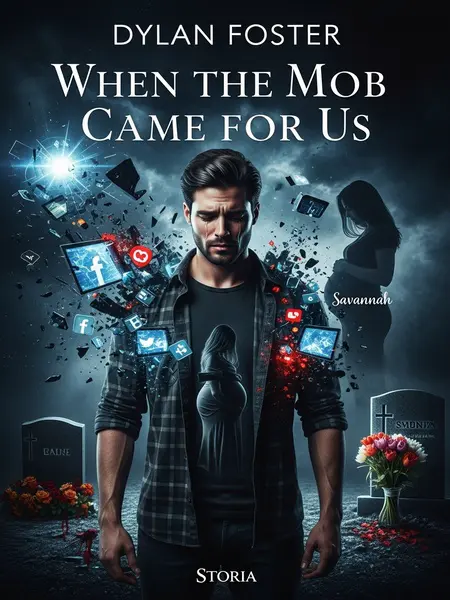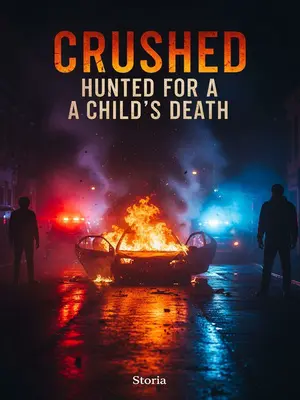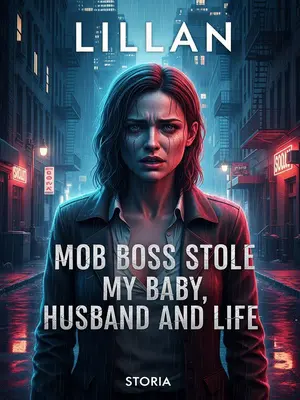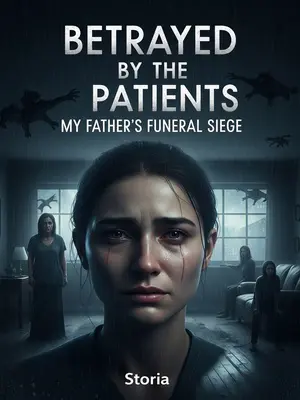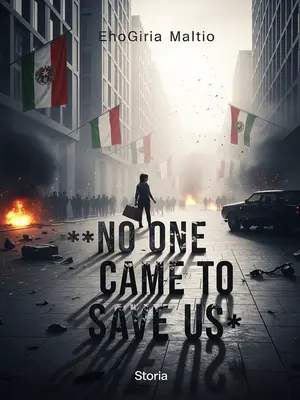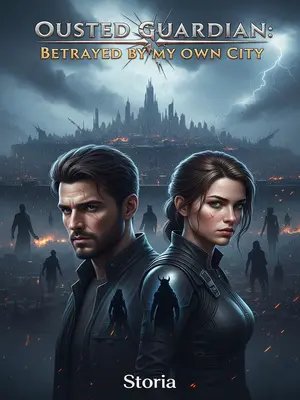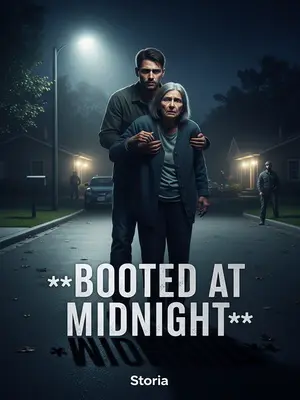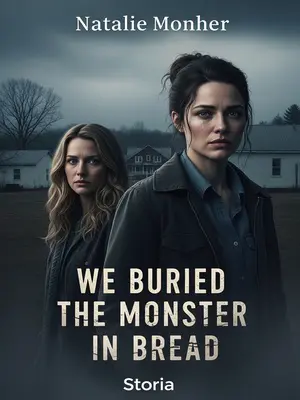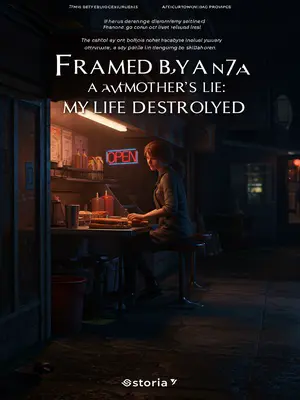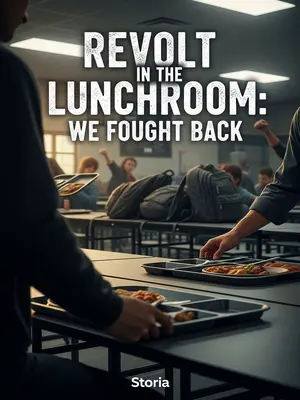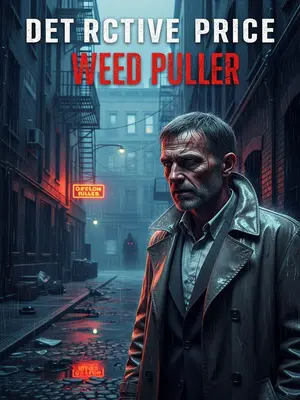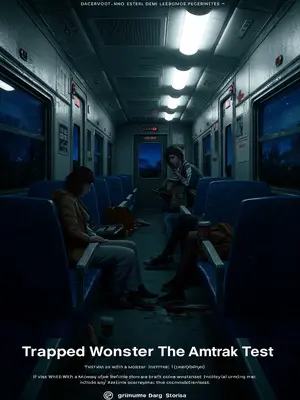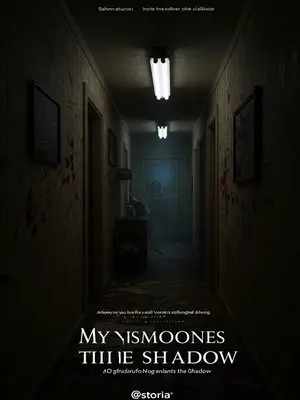Chapter 8: What Remains
That night, I discovered the reason for Savannah’s suicide on her phone.
Her phone was unlocked, lying on the nightstand. I scrolled through her messages, her search history, desperate for answers.
It was the last video she had watched.
The screen was still open, paused on a woman’s face. I pressed play, heart pounding.
In it, a young woman in a vintage dress appeared.
She sat in a sunlit room, surrounded by fairy lights and inspirational quotes on the wall—"Good Vibes Only" and "Manifest Your Destiny." Her voice was soft, soothing, almost hypnotic.
She had long hair and a gentle face, speaking of karma and divine punishment, the deep sins of mothers who miscarry, and how being unkind to the elderly was a grave offense. She referenced the latest wellness trends—crystals, breathwork, "toxic energy."
Her words were poison, wrapped in honey. She spoke of fate, of punishment, of suffering as a just reward for sin. Every sentence was a dagger aimed at Savannah’s heart.
She didn’t mention Savannah by name, but every word stabbed at her wounds.
The message was clear, unmistakable. Savannah was to blame for her own pain, her own loss. The world agreed, and now, so did she.
I scrolled through her past videos—lighting candles, arranging flowers, sipping tea, pure cotton dresses... the typical “spiritual influencer.”
Her feed was a parade of faux wisdom and manufactured serenity. She sold peace and healing, but all I saw was manipulation and cruelty.
The cruelest irony was the video she posted after Savannah’s death.
She wasted no time, capitalizing on the tragedy. Her face was solemn, her tone grave, but her eyes sparkled with satisfaction.
In it, she spoke with false compassion, saying suicide was a sign of weakness and would lead straight to hell, never to find peace.
She warned her followers not to stray from the path, not to let despair win. She offered no comfort, only condemnation.
At the end, she recommended a book on finding inner peace, urging viewers not to take the wrong path.
She plugged her own book, her own brand, turning Savannah’s death into a marketing opportunity. I wanted to smash the phone, to erase her from existence.
Watching her casual smile, my eyes went blood-red.
I saw red, pure and blinding. I wanted revenge, justice, something—anything—to make her pay.
At the same time, another video quickly went viral.
It was the one shot by the young influencer that afternoon.
In the video, I frowned and admitted I had hit someone, then tried to justify myself, saying, “Anyone would get agitated when faced with a scam like that.”
The clip was edited, cut to make me look unhinged. My words were twisted, my intentions distorted.
“I believe most people can understand. I hope everyone will judge fairly and not be misled.”
My plea was mocked, my pain dismissed. The comments were merciless.
The influencer pressed me, asking if I thought people online were just keyboard warriors. I turned and left, even pushing her to the ground.
The video ended with her fake tears, her trembling voice. The narrative was set—I was the villain, she the victim.
Half the comments scolded me for being violent and mentally unstable.
They called for my arrest, my institutionalization. They said I was a danger to society, to myself, to everyone around me.
The other half worried about the influencer, asking if she was hurt or traumatized.
They sent her messages of support, donations, offers of protection. She milked it for all it was worth, posting updates and thank-yous.
Reading those callous comments, I laughed bitterly.
The sound was harsh, alien. I barely recognized myself. The world was upside down, and I was trapped inside it.
Mary Miller, Randy—they were both guilty.
But they weren’t alone. The influencers, the mob, the bystanders—they all played a part. They all had blood on their hands.
And these so-called influencers, their hands were just as dirty.
They profited from our pain, our tragedy. They built their brands on our suffering, and no one held them accountable.
I wanted them to pay.
I vowed, then and there, to make them answer for what they’d done. I would not rest until justice was served.
After Savannah’s burial, the lawyer came to me with a stack of documents.
The funeral was small, quiet, attended only by a handful of friends and family. I stood by her grave, numb and hollow, clutching the papers the lawyer handed me.
They showed that Randy was unemployed and addicted to gambling. He had married a widow from his hometown, Emily, and the three of them often staged accidents together.
The evidence was damning—bank statements, witness testimonies, police reports. Randy’s entire life was a lie, built on the misery of others.
The lawyer had gathered testimony from two victims.
They spoke in hushed tones, afraid of retribution. But their stories matched mine—same tactics, same lies, same heartbreak.
One said the scammer was a young woman. When Randy tried to extort him, the woman urged Randy to ask for less and was beaten for it—he remembered it clearly.
He described Emily in detail—the fear in her eyes, the bruises on her arms. She was a victim, too, trapped in Randy’s web.
Another said a young woman hit his car and miscarried, and he sold everything to pay twenty thousand to the woman and Randy.
His voice shook as he recounted the loss, the shame. I saw myself in him, and my resolve hardened.
With these two accounts, I pieced things together.
The puzzle was complete. I knew what I had to do.
What pregnant woman would risk her life to stage an accident?
The question lingered in my mind. Emily was desperate, but not cruel. She was trapped, just like me.
That young woman must have been Emily.
She was the key to bringing Randy down. I just had to reach her, to convince her to help.
She probably didn’t want to go along with Randy but was powerless to resist.
I saw her as an ally, not an enemy. I hoped she’d see me the same way.
So, I decided to find an ally to take down Randy—Emily was the perfect choice.
I rehearsed my pitch, planned my approach. I needed her trust, her testimony. Together, we could end Randy’s reign of terror.
From the last phone call, I could tell Randy was extremely cautious. The breakthrough had to be with Emily.
He was too smart, too slippery. But Emily was different—she had a conscience, a heart. I just had to reach her.
I told the lawyer to wait for my news and went alone to the hospital where Mary was recovering.
The hospital was quiet, the halls dimly lit. I waited outside Mary’s room, heart pounding. I didn’t know what I’d say, but I knew I had to try. The billing staff shuffled by, glancing at me with suspicion. I noticed a sign for "Insurance and Billing Inquiries" by the elevators, a reminder of the ever-present American healthcare bureaucracy.
I planned to wait for Emily.
I paced the corridor, nerves jangling. Every time the elevator dinged, my heart leapt. Finally, she appeared, clutching a bag of groceries, eyes downcast.
With her mother-in-law hospitalized, Emily, as the daughter-in-law, would surely come to care for her.
She moved quietly, head bowed, avoiding eye contact. I watched her for a moment, then approached, careful not to startle her.
Sure enough, my guess was right.
She froze when she saw me, eyes wide with fear. I raised my hands, palms open, trying to look harmless.
Though I’d seen her info, I was still shocked when I met Emily in person.
She looked older than her years—hair streaked with gray, skin lined and tired. There was a sadness in her eyes that broke my heart.
Clearly only in her early thirties, she looked as old as fifty, with dry skin, gray at the temples, and, most strikingly, lifeless eyes.
She flinched when I spoke, shrinking into herself. I kept my voice soft, gentle, hoping to reach her.
When she saw me, Emily shrank back. She recognized me.
She whispered apologies, her voice barely audible. Tears welled in her eyes, and I saw the depth of her pain.
“Sorry, sorry…”
She covered her face, mumbling apologies, tears slipping through her rough fingers.
Her shoulders shook, her body wracked with silent sobs. I waited, giving her time to compose herself.
Emily and Randy were from the same rural town.
She told me her story in fragments—how they’d grown up together, how Randy had charmed her, promised her a better life.
Randy had gone to the city early, boasting about making big money, showing off when he came home.
He dazzled her with stories of success, of wealth and adventure. She believed him, desperate for a way out.
He didn’t mind that Emily was a widow with a child. He held a backyard wedding and brought her and her child to the city.
She thought she’d found salvation, a new beginning. But the dream quickly soured.
Emily thought her good days had come, but her hopes were dashed.
Randy’s promises were empty. He was cruel, manipulative, violent. She realized too late that she was trapped.
Randy’s so-called business was actually staged accidents and extortion.
He forced her to participate, threatening her and her child. She was terrified, but saw no way out.
Emily would have preferred honest work to such immoral scams.
She begged him to stop, to let her find a real job. But he laughed, called her weak, threatened her again.
But Randy threatened her child, saying if she didn’t help with the cons, he’d push the kid into traffic.
The threat was real, and she knew he meant it. She did what he asked, hating herself more with every lie.
For money, Randy would do anything.
He gambled away everything they had, then blamed her for their poverty. He beat her when she protested, called her worthless.
Emily had no choice but to comply, but each time, she urged Randy to scam less and was often beaten for it.
She showed me the bruises, the scars. Her pain was raw, palpable. I promised to help her, to protect her and her child.
Mary, being old, wanted her daughter-in-law to take her place, but Emily had no acting skills and lacked ruthlessness, so Mary looked down on her.
Mary was cruel, demanding, never satisfied. She blamed Emily for everything, called her useless, lazy.
Once, to make the act convincing, Mary actually pushed Emily under a car.
Emily showed me the scar on her leg, a permanent reminder of Mary’s cruelty. She’d nearly died that night, but Mary didn’t care.
That time, Emily miscarried.
She broke down, sobbing uncontrollably. I held her hand, letting her grieve. We were both parents who had lost children. Our pain united us.
Listening to her recount the pain of losing her child, my heart twisted as well.
I saw myself in her, the same grief, the same helplessness. I knew she would help me. We were in this together now.
We were both parents who had lost children. I knew she would help me.
Our alliance began.
First, I had Emily give me the full video from that rainy night.
She handed over the USB drive, hands shaking. I thanked her, promised to use it wisely. The truth was finally within reach.
According to her, they were about to call it a day when they saw my nice car. Mary decided to run the scam herself.
They targeted people like me—successful, desperate to avoid scandal. They knew exactly what buttons to push.
They often recorded their scams. If the driver got angry, they’d take screenshots and threaten to ruin his reputation.
They kept a library of videos, each one a potential weapon. It was a sick, twisted game.
The richer the car owner, the more they cared about their image and wanted to avoid scandal. This trick always worked.
They preyed on fear, on shame, on the desire to keep things quiet. It was a perfect crime, until now.
But they didn’t expect that after Savannah miscarried, I would refuse to settle and insist on suing Randy.
They were used to easy marks, quick payoffs. My refusal threw them off balance, made them desperate.
Randy, furious, released only the second half of the video, hired bots to hype it up, and amplified the impact.
He manipulated the narrative, turned the world against me. I was powerless to stop him—until now.
He wanted me to experience the power of online abuse and force me to give in.
He relished my suffering, my humiliation. But he underestimated my resolve.
Now, the full video was quietly saved on my phone.
I watched it again and again, memorizing every detail. The truth was clear, undeniable. I was ready to fight back.
After securing it, I arranged to meet the influencers who had led the online mob—including the staged-fall beauty vlogger and the pseudo-spiritual influencer who drove Savannah to her death.
I invited them to a neutral location, promised a big scoop. They came, eager for more drama, more content.
In front of them, I broke down and told them how online abuse had destroyed my life.
I showed them Savannah’s medical records, her death certificate, the messages we’d received. I begged them to help me set the record straight.
I promised that as long as they helped clear my name, any price could be negotiated.
They smelled money, opportunity. Their masks slipped, revealing their true selves—greedy, ruthless, amoral.
Faced with easy money, their true colors emerged.
Some negotiated directly—two hundred thousand to settle, five hundred thousand to reverse the story.
They named their prices without shame, as if my pain was just another commodity.
Some talked about “brand collabs,” wanting to use the incident’s popularity for sponsored content, livestream sales with me, or "going viral" together.
They pitched brand deals, sponsorships, cross-promotions. It was all about clicks, followers, revenue.
The most outrageous were the spiritual influencer and the staged-fall vlogger.
They were shameless, brazen. Their ideas were wild, grotesque, bordering on parody.
The spiritual influencer dropped her pure image, showing up with heavy makeup and bright red lipstick.
She looked nothing like her online persona—hard, cold, calculating. She pitched her scheme with a practiced smile.
She wanted me to pretend to be depressed after my wife’s suicide, then, after her guidance, emerge from despair, fully enlightened.
She outlined a script, complete with talking points, hashtags, and a timeline. She promised I’d be a star, a symbol of hope and healing.
With this gimmick, she could recruit followers and sell courses.
She showed me her sales projections, her marketing plan. It was all about profit, never about truth.
The staged-fall vlogger was even more creative.
She wanted me to climb onto the balcony and pretend to attempt suicide, attracting public attention.
She sketched out the scene, complete with camera angles and dramatic music. She promised it would go viral, guaranteed.
Then she would lead the charge in questioning whether such a loving husband might have hidden truths about the incident.
She promised to control the narrative, to guide public opinion. All I had to do was play my part.
Step by step, she’d build my tragic persona, win public sympathy, and whitewash me after gaining enough attention.
She mapped out a redemption arc, complete with staged apologies and heartfelt confessions. It was all a performance, all a lie.
“Isn’t this too ridiculous? Will people buy it?” I frowned at her script.
I couldn’t believe what I was hearing. Did they really think the world was that gullible?
“What do people online know? They just follow the hype,” the vlogger sneered. “You just act, and my team will handle the rest. With this script, you’ll have millions of fans in no time.”
She was confident, cocky, convinced of her own genius. I wanted to laugh, to cry, to scream.
Looking at her blood-red lips opening and closing, I sneered inwardly.
They were all the same—predators, leeches, parasites. They cared about nothing but themselves.
To them, the public and followers were just tools for making money.
They saw people as numbers, as wallets, as pawns in their game. The truth was irrelevant.
They didn’t care about the truth.
They never had, never would. I was done playing by their rules.
They only wanted drama and more clicks.
So I gave them what they wanted—one last story, one final twist.
Since they wanted to stir things up, so be it.
I played along, nodding, smiling, promising to think it over. But I had other plans.
The next day, I released the full video and the recordings of my meetings with the influencers online.
I uploaded everything—unedited, unfiltered, raw. I posted it everywhere—YouTube, Twitter/X, Facebook, Instagram. I tagged every influencer, every news outlet, every watchdog group.
I even bought bots to promote the posts, just like Randy.
I played their game, used their tactics. I made sure the story spread, fast and wide.
In fact, I didn’t have to do much. The topic was still hot, and as soon as the reversal video appeared, the internet exploded.
People couldn’t believe what they were seeing. The truth was undeniable, the evidence overwhelming. The tide turned in an instant.
They thought they were standing up for justice, following the influencers to denounce me.
Now, they realized they’d been duped, manipulated, used as weapons in someone else’s war.
But after the truth came out, they realized they’d been used as weapons by the influencers.
The outrage was swift and merciless. The influencers’ followers turned on them, demanding accountability, apologies, retribution.
They had hurt innocent people, driven Savannah to her death, and in the end, only made the influencers richer.
The irony was bitter, but satisfying. The mob had finally found its true target.
The influencers who once stood for reason and justice were instantly exposed as frauds.
Their sponsors dropped them, their followers abandoned them, their reputations destroyed overnight.
People online, with the same energy they used to dig up my info, rushed to the influencers’ pages.
They posted their own investigations, exposing every lie, every scam, every dirty secret. The influencers’ lives became open books, every flaw magnified.
In less than half an hour, all their addresses, phone numbers, and personal information were exposed. They were doxxed on Reddit, Twitter, and TikTok, their privacy stripped away just as mine had been.
They tasted the same medicine they’d forced down my throat. The harassment, the threats, the fear—it was all theirs now.
The so-called successful figures were actually deep in debt.
Their luxury lifestyles were illusions, propped up by loans and fake followers. The truth was uglier than anyone imagined.
The much-admired overseas grad had only a GED.
Her credentials were fake, her resume a work of fiction. She’d lied her way to the top, and now the truth was out.
The beautiful vlogger, without filters or makeup, was just a tired, overweight, ordinary woman.
The world saw her unfiltered face, her messy apartment, her real life. The backlash was brutal, unrelenting.
The self-styled spiritual influencer led a messy private life and had been a mistress, breaking up other families.
Her secrets spilled out, one after another. Her followers abandoned her in droves, her sponsors dropped her overnight.
The deeper the love, the deeper the hate. The more they were idolized before, the more they were hated now.
Abuse, curses, harassing calls, smashed cars…
They experienced it all—the fear, the humiliation, the pain. I watched from a distance, feeling nothing.
All the nightmares I had endured were now playing out in their lives.
Poetic justice, perhaps. But it didn’t bring Savannah back. It didn’t heal my wounds.
Of course, Randy and Mary didn’t fare well either.
Their world collapsed, just as mine had. They were pariahs, hunted, despised.
Several zealous vloggers went straight to the hospital, confronting Mary: the test results showed she was perfectly healthy, so why was she still there—planning more scams?
They shoved cameras in her face, demanded answers. Mary stammered, lied, tried to run. It was all caught on tape, shared with the world.
Faced with cameras shoved in her face, Mary turned ashen with fright.
She shrank into herself, eyes wide with terror. The act was over, and the audience was unforgiving.
Because of her age and the case’s high profile, the hospital had previously waived some of her bills.
They’d felt sorry for her, believed her lies. Now, they wanted their money back.
After the truth came out, the hospital acted decisively, demanding Mary pay all overdue bills.
They threatened to sue, to garnish her social security. She had nowhere left to turn.
Randy, the gambling addict, had no savings and was forced to leave the hospital with Mary in disgrace.
They packed their bags, slunk out the back door, chased by reporters and angry neighbors. Their empire of lies had crumbled.
According to Emily, Randy’s days became miserable.
He bounced from one flop house to another, dodging creditors, begging for handouts. His old friends abandoned him, his luck ran out.
Once, when he tried his usual scam, the driver recognized him, grabbed his collar, and called him a con artist. Not only did he refuse to pay, he demanded compensation for scratches on his car.
Randy barely escaped with his life. Word spread quickly—his face was everywhere, his reputation destroyed.
Randy fled in panic.
He ran, but there was nowhere left to hide. The world was smaller than he thought.
With his scam income gone, Randy, urged by Emily, spent every day at the casino, dreaming of getting rich overnight.
He chased losses, borrowed from loan sharks, pawned everything he owned. The spiral was fast and brutal.
But he forgot one thing: gamblers always lose in the end.
The house always wins. Randy was no exception.
High-interest debts piled up. Soon Randy was desperate, nearly ready to rob a bank.
He fantasized about big scores, easy money. But reality was harsh, unforgiving.
At this moment, I appeared.
I found him at a dive bar, drunk and belligerent. I walked in, head held high, and let him see what victory looked like.
With the swagger of a victor, I taunted Randy with every word, then turned and left.
I told him exactly what I thought of him, left him sputtering with rage. It felt good, in a twisted way.
“Mr. Foster, please let us go.”
Emily ran after me, begging.
She pleaded for mercy, for a fresh start. I saw the fear in her eyes, the desperation. I promised to help her, to keep her and her child safe.
I pretended to be proud, didn’t look back, and drove away.
It was all part of the plan. I needed Randy desperate, reckless, willing to do anything.
“Randy, look at this. It seems Mr. Foster dropped it.”
Emily handed Randy the wallet I had deliberately left behind.
She played her part perfectly, feigning surprise, feigning innocence. Randy’s eyes lit up with greed.
Inside were a few bills and the key to my house.
He saw opportunity, saw a chance to strike back. I knew exactly what he was thinking.
A flash of greed appeared in Randy’s eyes.
He licked his lips, glanced at Emily, already plotting his next move.
Emily pretended not to notice, muttering, “Mr. Foster is really loaded. I saw a suitcase in his car, full of cash.”
She planted the seed, watched it grow. Randy was hooked, unable to resist.
“He told me not to follow him—he’s busy packing for a trip. Tsk, we can’t even get enough to eat, but he…”
She kept muttering, watching Randy’s expression.
He barely heard her, already lost in his own fantasies. The trap was set.
Randy hesitated, told Emily he had something to do that night, and left home.
She watched him go, heart pounding. She messaged me as soon as he was gone.
Emily let out a long sigh of relief and messaged me.
The plan was in motion. All we had to do was wait.
The fish had taken the bait.
I read her message, smiled grimly. It was almost over.
As the saying goes, a desperate gambler will do anything.
Randy was no exception. He’d take the risk, convinced he could win. But this time, the odds were against him.
A lazy, gambling addict could never make an honest living.
He’d chosen his path, and now he’d pay the price.
Driven to desperation by money, Randy would surely be tempted by my suitcase of cash.
He couldn’t resist. He never could.
I waited in my living room with a baseball bat.
The house was dark, silent. I sat in the shadows, bat across my knees, heart pounding. I was ready.
At one in the morning, I heard a rustling outside the door. The lock turned quietly.
I held my breath, muscles tense. The door creaked open, and Randy slipped inside, moving like a ghost.
I tensed, gripped the bat, and hid behind the shoe rack.
I watched him from the shadows, waiting for the perfect moment.
A dark figure crept in.
He moved quickly, eyes darting around the room. He spotted the suitcase on the coffee table and hurried over.
With the streetlights outside, the living room wasn’t too dark, and the black suitcase on the coffee table stood out.
The moonlight caught the metal clasps, making them gleam. Randy licked his lips, anticipation written all over his face.
The figure hesitated, but couldn’t resist stepping forward and opening the case.
He flipped the latches, lifted the lid, and stared inside, confusion flickering across his face.
There weren’t stacks of bills inside as he imagined. Just a shiny, sharp knife in the empty suitcase.
He picked up the knife, as if to see if there was something hidden.
He turned it over in his hands, frowning. The blade caught the light, reflecting his distorted face.
I didn’t wait any longer. I raised the bat and smashed his wrist.
The crack was loud, satisfying. Randy screamed, dropping the knife. I didn’t hesitate—I swung again, and again.
“Aow!”
He screamed in pain, dropping the knife.
He crumpled to the floor, clutching his wrist. Blood spattered the carpet, the knife skittered across the room.
I didn’t stop, swinging the bat at him again and again.
Years of anger, grief, and fear poured out of me. Each blow was a release, a catharsis. I didn’t hold back.
“Stop, stop!”
He screamed, hugging his head.
He begged for mercy, but I was beyond mercy. I kept swinging, kept hitting, until my arms ached and my breath came in ragged gasps.
I ignored him, pouring all my strength and hatred into each blow.
The rage was blinding, overwhelming. For once, I felt powerful, in control.
With a sickening crack, he howled and fell to the ground.
His arm twisted at an unnatural angle, blood pooling beneath him. He whimpered, tried to crawl away, but I blocked his path.
“Dylan Foster, I’ll kill you…”
He spat blood, eyes wild with fury. I didn’t care. I kicked him hard, sending him sprawling.
I didn’t give him a chance to finish. I kicked him hard in the face. With a muffled cry, warm blood splattered my leg.
He went limp, unconscious. I stood over him, chest heaving, the bat still in my hands.
I kept kicking him, over and over, until he stopped moaning and I was spent.
I collapsed onto the couch, shaking. The adrenaline faded, replaced by exhaustion. I stared at Randy’s broken body, numb.
I caught my breath and turned on the light.
The room was a mess—blood, broken glass, overturned furniture. I didn’t care. I’d won.
Lying on the floor was Randy Miller, his face covered in blood, his arm twisted at a grotesque angle.
He groaned, tried to sit up, but collapsed again. I watched him, unmoved.
A pool of blood and two teeth lay beside him.
The sight was gruesome, but satisfying. Justice, at last.
Randy’s eyes were filled with terror and hatred, staring at me.
He knew it was over. I’d beaten him at his own game.
His screams had woken the neighbors. I opened the door and, with everyone watching, called the police.
The hallway filled with curious faces, phones raised, whispers flying. I didn’t care. I wanted everyone to see.
Emily confirmed that Randy owed gambling debts and had my house key.
She gave her statement, calm and composed. The police listened, nodding, taking notes.
Randy’s fingerprints were on the knife. It was a clear case of burglary and attempted robbery.
The evidence was overwhelming. The police cuffed him, read him his rights. He glared at me, but I just smiled.
I quickly filed a lawsuit, adding multiple charges: staged accidents, indirect responsibility for Savannah’s tragic labor, spreading malicious rumors online.
My lawyer worked overtime, building the case. We had everything—witnesses, videos, documents. Randy didn’t stand a chance.
With solid evidence, Randy was sentenced to sixty years in prison for multiple crimes.
The verdict was swift, decisive. The judge called him a menace to society, a danger to everyone around him. I watched as he was led away in chains.
He would spend the rest of his life behind bars.
I felt a measure of peace, knowing he’d never hurt anyone else again.
At the same time, I sued the online influencers in court.
They squirmed on the witness stand, faces pale, voices trembling. Their lawyers tried to spin the story, but the evidence was clear.
Having suffered online abuse themselves, the influencers wept in court, expressing deep regret.
They begged for mercy, for forgiveness. I felt nothing. Their tears meant nothing to me.
Listening to their tearful pleas, I felt nothing.
I’d seen behind the curtain, seen the ugliness beneath the surface. I was done with pity, with compassion.
After seeing their “scriptwriting,” who knew if it was just another act?
Their apologies rang hollow, rehearsed. I didn’t believe a word.
In the end, the influencers were deplatformed, banned from their accounts, and ordered to compensate me for defamation.
The sentences were light, but the damage to their reputations was permanent. They faded into obscurity, forgotten by the world they once ruled.
There was a small epilogue to the whole affair.
Life moved on, slowly, painfully. I tried to rebuild, to find meaning in the wreckage.
After Randy went to prison, Emily took her child back to the countryside. Mary, too ashamed to return home, could only stay alone in the city.
Emily sent me postcards from time to time, updates on her child, her new life. I wished her well, hoped she’d find peace.
She was already over seventy and wouldn’t go to jail, so I let her be, wanting her to taste the pain of losing a son.
I saw her sometimes, wandering the streets, hunched and broken. I felt nothing—no anger, no pity. Just emptiness.
But with no income, she returned to her old ways, choosing a dark, moonless night to stage another accident.
She couldn’t help herself. The lure of easy money was too strong. But fate had other plans.
This time, she picked the wrong target.
The driver was younger, meaner, more desperate than she was. He didn’t stop, didn’t care.
She was hit by a car with fake plates. Instead of scamming the driver, she had both legs broken.
She spent weeks in the hospital, alone and forgotten. No one visited, no one cared. Local news covered it as another hit-and-run, and a neighbor set up a GoFundMe for her hospital bills, but donations barely trickled in.
The intersection had no surveillance, and it was late at night, giving the perpetrator a perfect chance to escape.
The police shrugged, filed a report, moved on. Mary was just another statistic, another casualty of a world gone mad.
Maybe, in the end, there really is such a thing as fate.
I thought about Savannah, about our child, about everything we’d lost. I wondered if justice was real, if karma truly existed.
Evil reaps what it sows. What goes around comes around.
In the end, the world keeps turning. The guilty pay, the innocent mourn, and life goes on. I carry Savannah’s memory with me, always—a reminder of what was, and what could have been.
